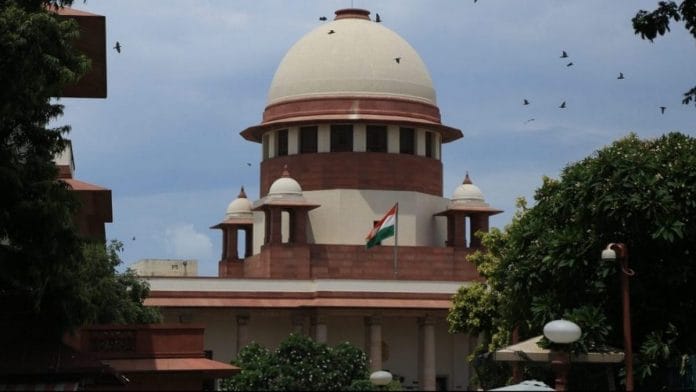New Delhi: The right to speedy trial also includes the right to speedy disposal of appeals of those convicted, the Supreme Court noted recently as it directed six high courts to spell out how they plan to quickly dispose criminal appeals pending for a long period of time.
The six states asked to file affidavits are Uttar Pradesh, Rajasthan, Madhya Pradesh, Bihar, Maharashtra and Odisha.
The order was pronounced by a bench of Justices L.N. Rao and S. Ravindra Bhat on 15 June, when they were hearing a petition filed by a murder convict on 28 September 2019, seeking suspension of his life sentence.
The bench highlighted that over 2 lakh criminal cases have been pending for nearly 20 years in 10 high courts, where a final decision is awaited.
In support of his contention, the petitioner said he had already spent three years in jail and there appeared “no likelihood” of the Allahabad High Court hearing the appeal against his conviction and sentence in the “near future”.
Under the three-tier hierarchy in the judiciary, an appeal against a trial court’s final verdict in a criminal case — whether conviction or acquittal — is filed before the high court. Once it is decided upon by the high court, it goes to the Supreme Court.
On 4 November 2019, the bench had expanded the scope of the petition and decided to address the expeditious disposal of cases as a whole.
It was not possible for the court to pass directions on a case-to-case basis as and when the accused approached it, the bench had then observed.
Also read: ‘Lord Jagannath will forgive us’ — SC on staying this year’s Rath Yatra in Odisha
Over 2 lakh criminal appeals pending in 10 high courts
According to the National Judicial Data Grid (NJDG), an online database that keeps a record of pending cases, more than 2.35 lakh criminal appeals have been pending before 10 high courts for almost 20 years.
The bench quoted the statistics from the grid to further note that there are 14,484 similar appeals that have not been decided for 30 years. Furthermore, over 33,000 appeals, which are more than 20 years old but less than 30, await a final hearing.
Emphasising on the importance of right to appeal and the need for speedy disposal, the bench said: “Right to speedy trial would also include the right to speedy disposal of appeals of those convicted. If such appeals are not taken up for hearing within a reasonable time, the right of appeal itself would be illusory, inasmuch as incarcerated convicts (who are denied bail) would have undergone a major part- if not whole of the period of their sentence.”
Also read: Don’t just blame India’s courts, it’s the police that can’t solve criminal cases in time
Information to be collected by prisoners
The apex court also broadly indicated the information it expects from the high courts in the order.
The details sought by the court include total number of convicts awaiting hearing of their appeals pending before the high courts, number of old cases in which bail has been granted, the steps proposed to expedite these hearings, and measures to be taken to prioritise hearing of cases of convicts in jail.
Apart from the data, it has also asked the states to explore the feasibility of having a dedicated pool of amicus curiae — lawyers who assist the court at the expense of state exchequer — to argue such old matters.
The high courts also need to look at the appropriate use of information technology, such as digitisation of case records.
The SC has even asked the state legal services authority to coordinate with the respective prison authorities to draw up a suitable questionnaire for prisoners in relation to the status of their appeal and their incarceration period.
The questionnaire should include the provisions under which prisoners have been convicted, the period of sentence undergone and their health condition. This information, the court said, will be compared with the data available with the high court on the pending appeals.
The legal services authority will coordinate with the high courts in compiling the relevant data. The court will hear the matter again on 29 July.






